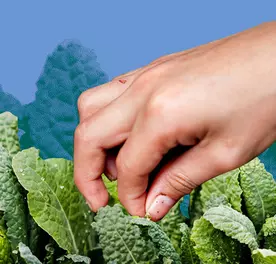

Hero banner custom title
Five water-intensive foods to be consumed in moderation
3 min
Every continent in the world suffered from drought this past summer. Water has become a threatened resource yet is essential to food security. Saving water is therefore a priority albeit a problematic one given the invisibility of certain water uses - specifically the huge quantities needed to grow the food that keeps humankind alive. Hence the sustainability imperative of raising awareness regarding which foods should be consumed in moderation.
Avocados
This has become an extremely popular foodstuff, in part because of its antioxidant properties and unsaturated fatty acids. Avocados are excellent healthwise but significantly less positive for the environment, with an estimated 1,000 liters of water needed to produce just one kilo of this fashionable “superfood”.
Note the explosion in avocado growing over the past few decades. Global cropland devoted to this one fruit rose from 188,000 hectares in 1980 to 807,000 hectares in 2020.
The massive quantities of water needed to grow so many avocados is already having an effect on the countries (and local populations) where this is happening. The south of Spain, for instance, suffers from water stress, a situation initially attributable to climate vagaries of course but which has been exacerbated by the proliferation of avocado plantations. For the same reason, Chile’s Petorca has been experiencing soil aridification, with locals now being forced to rely on water trucks for their supplies. Otherwise and above and beyond these water husbandry issues, many producers also disperse a cocktail of extremely harmful pesticides when growing this new “green gold” - as avocados are referred to by the cartels controlling their production in Mexico nowadays.
Almonds
Almonds’ growing popularity could also be bad news for the planet. Almond milk (which is rich in vitamins A, B and E) now accounts for two-thirds of all plant-based milk drunk worldwide.
Yet producing these nuts is extremely water-intensive – they consume, for instance, 10% of all freshwater resources in California, the US state where their production is largely concentrated.
Sugar
A WWF study has determined that sugar ranks as one of the world’s most environmentally harmful crops. Note only do sugarcane plantations undermine biodiversity but they also consume great quantities of water.
Indeed, it takes a whopping 1,780 liters of water to get just one kilo of sugar.
Despite this, sugarcane production has expanded in several drought-prone regions of the world even as water becomes increasingly scarce. One example is Pakistan, whose four main crops (wheat, rice, sugarcane and cotton) account altogether for 80% of total national water consumption but only 5% of GDP.
Chocolate
The World Bank reckons that cocoa farming led to the destruction of two to three million hectares of tropical forest between 1988 and 2008. On top of this, chocolate production is extremely water-intensive, with cocoa trees each needing between 10 and 15 liters a day.
Estimates are that it takes about 17,000 liters of water to produce one kilo of chocolate.
Meat
The real debate here is whether people should eat less meat or none at all. Excessive meat consumption has a huge environmental impact, with 64% of the world's arable land being dedicated to the production of this one foodstuff, which is therefore responsible for both substantial global greenhouse gas emissions and water consumption.
Calculations are that it takes more than 15,000 liters of water to produce one kilo of beef.
On top of this, farms producing meat and eggs on an industrial scale tend, according to GreenPeace, to further aggravate water pollution because of their habit of discharging “significant quantities of nitrates, phosphorus but also antibiotics and other pollutants” into the natural environment.
Share it:













